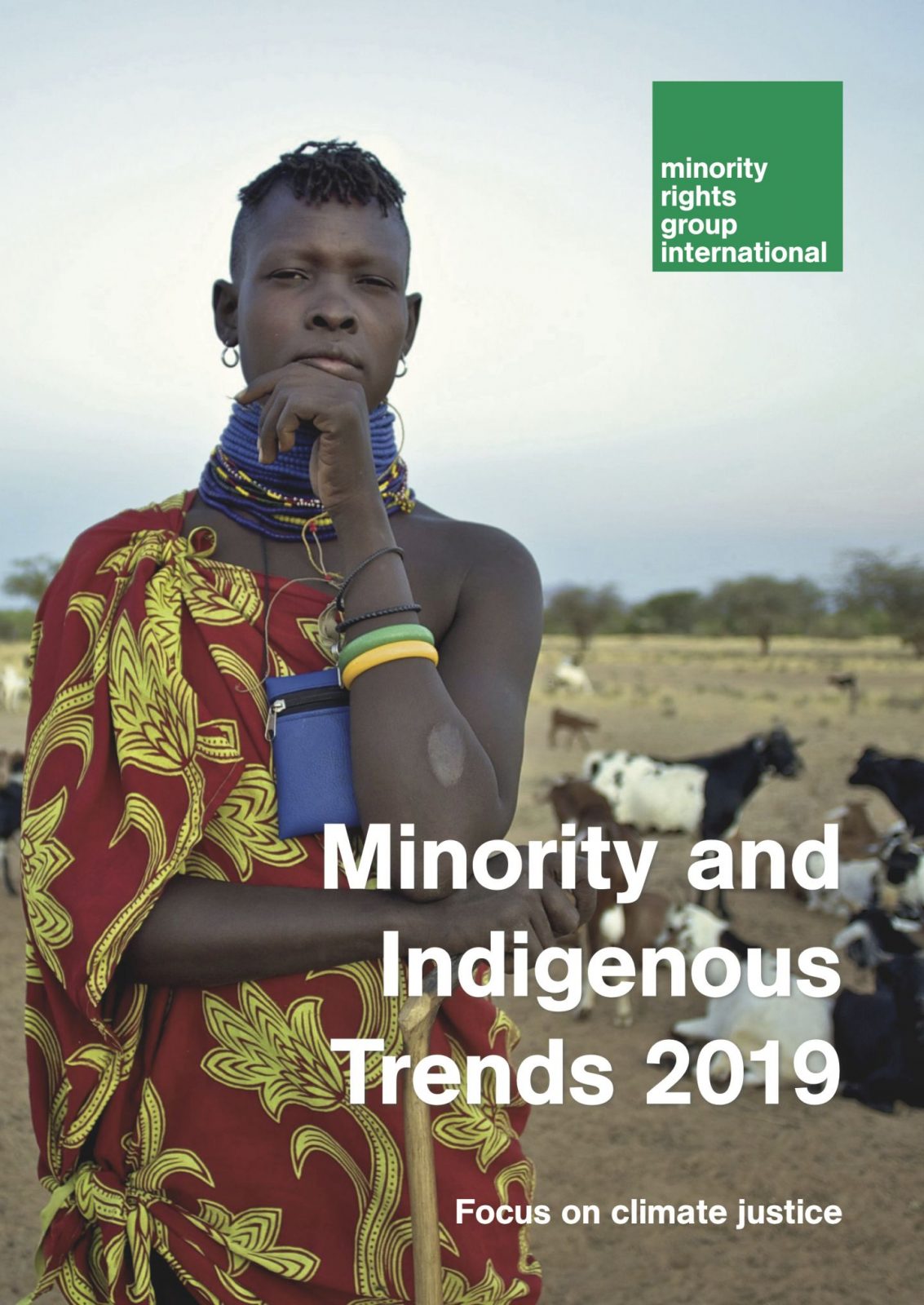
Minority and Indigenous Trends 2019 – Focus on climate justice
Climate change poses a profound environmental challenge that will leave no country or community untouched. Its social impact, if unaddressed, will reinforce inequalities, deepen poverty and leave the world’s most marginalized populations in greater insecurity. Minorities and indigenous peoples are already living with its consequences, from rising sea levels and higher temperatures to droughts and desertification. The discrimination and exclusion they face in many countries leave them disproportionately exposed to these negative effects.
This volume outlines some of the ways that climate change and other environmental pressures are affecting minority and indigenous communities across the world, in some instances placing their entire way of life under threat. Spanning a selection of regional case studies and three thematic chapters, it highlights how the vulnerability of minorities, indigenous peoples and other excluded groups is a product of a wider backdrop of discrimination, encompassing land, housing, culture, livelihoods and migration.
The surest means of strengthening their resilience, then, is through protection of their fundamental rights and ensuring their right to participate meaningfully in designing solutions to these challenges. Such an approach could transform communities from victims of climate change impacts to leaders of adaptation – a situation that would not only support the development of a more equitable global society, but also enhance the ability of humanity as a whole to respond to the current crisis.

